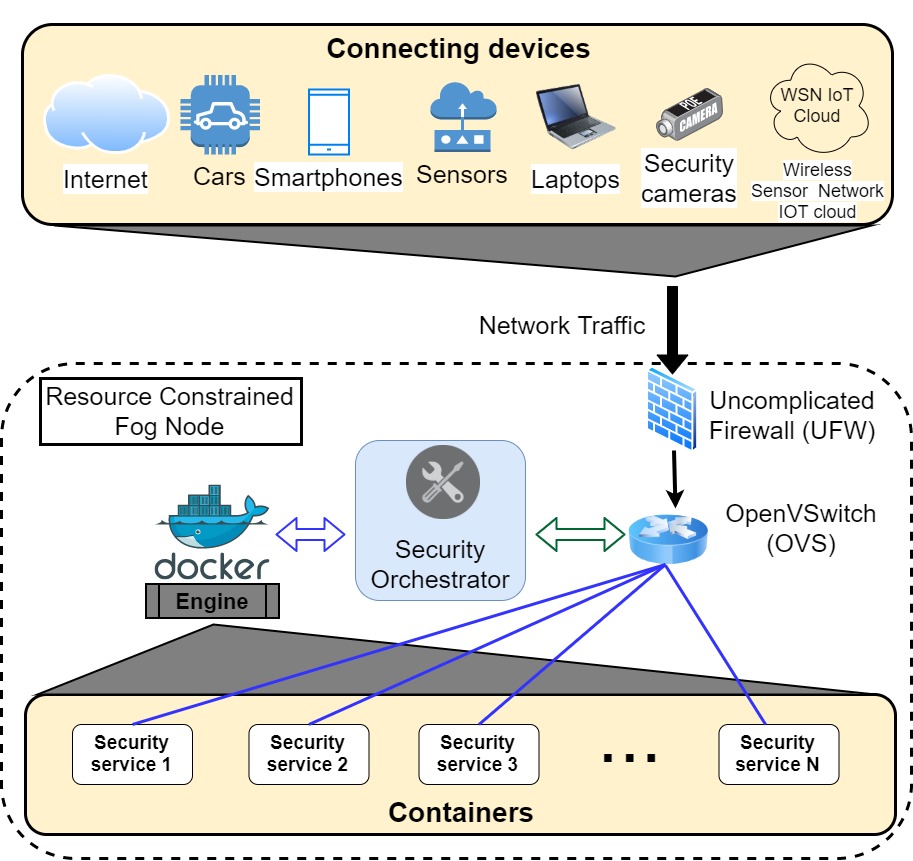
Dynamic Orchestration of Security Services at Fog Nodes for 5G IoT
- Post by: Vashish N. Imrith, Pasika Ranaweera, Rameshwar A. Jugurnauth and Madhusanka Liyanage
- June 7, 2020
- Comments off
Fog Computing is one of the edge computing paradigms that envisages being the proximate processing and storage infrastructure for a multitude of IoT appliances. With its dynamic deployability as a medium level cloud service, fog nodes are enabling heterogeneous service provisioning infrastructure that features scalability, interoperability, and adaptability. Out of the various 5G based services possible with the fog computing platforms, security services are imperative but minimally investigated direct live. Thus, in this research, we are focused on launching security services in a fog node with an architecture capable of provisioning on-demand service requests. As the fog nodes are constrained on resources, our intention is to integrate light-weight virtualization technology such as Docker for forming the service provisioning infrastructure. We managed to launch multiple security instances configured to be Intrusion Detection and Prevention Systems (IDPSs) on the fog infrastructure emulated via a Raspberry Pi-4 device. This environment was tested with multiple network flows to validate its feasibility. In our proposed architecture, orchestration strategies performed by the security orchestrator were stated as guidelines for achieving pragmatic, dynamic orchestration with fog in IoT deployments. The results of this research guarantee the possibility of developing an ambient security service model that facilitates IoT devices with enhanced security.


